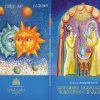He currently works as the Cultural Outreach Coordinator for the Serb National Federation in Pittsburgh, PA--the oldest Serbian Fraternal Benefit Society in the United States since 1901. During his work at the Serb National Federation, he studied Serbian tradition, history, and culture as well as organizing a Serbian Movie Festival at the University of Pittsburgh. He has presented many books including the "Christian Heritage of Kosovo and Metohija" and given interviews to National Public Radio (NPR), Voice of America, National Television of Serbia, etc.
Through his merit, Novak Djokovic, World Tennis Champion from Serbia, and Emir Kusturica, famed movie director, became honorary members of the Serb National Federation in 2015 and 2016. He is a regular contributing author of the American Srbobran, the oldest continuously published Serbian newspaper in the world since 1906. He was the screenwriter for the documentary film “Tesla’s People” about history of Serbs in the United States. As a Cultural Outreach Coordinator, he has lectured throughout the United States about the history of Serbs in America.
He is a Board Member of the Tesla Science Foundation in Philadelphia and promotes Tesla’s nameamong many events and people as well as worked for the event “200 Years of Serbs in the United States.”





